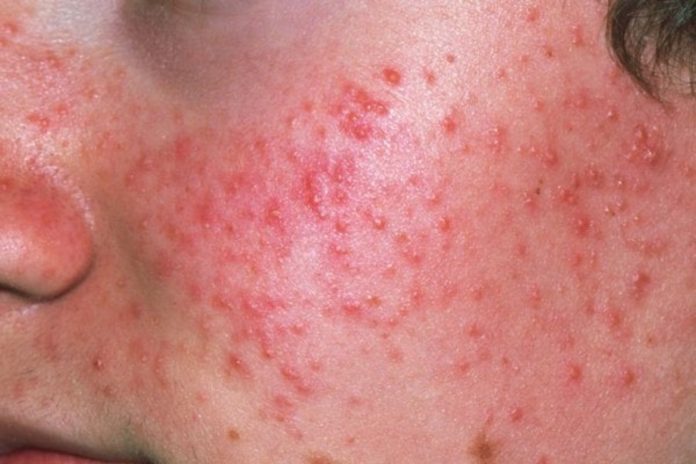Acne is an extremely common and distressing condition that affects the skin’s oil glands. The small holes in your skin (pores) connect to oil glands under the skin. These glands make an oily substance called sebum. The pores connect to the glands by a canal called a follicle. Inside the follicles, oil carries dead skin cells to the surface of the skin. A thin hair also grows through the follicle and out to the skin. When the follicle of a skin gland clogs up, this is when a pimple develops. Most pimples are found typically on the face, neck, back, chest and shoulders but they can appear literally anywhere. Acne can cause unsightly and in rare cases – permanent scarring but it is not life threatening. Acne develops when the hair, sebum and skin cells clump together to form a plug. A bacterium grows in the plug that causes swelling. Then when the plug starts to break down, a pimple grows.
Acne is the most common skin disease. Men and women of any age and race can get acne although it is generally believed to be a teenage ailment as it is most common in teenagers and adults. It is estimated that as much as 80% of the population aged between the age of 11 and 30 will experience some form of acne. Even those in the older generation, as old as in their fifties (though less common) can suffer from acne. The sole cause of acne in the first places not established, though people have many theories. To clear up one misconception, diet definitely does not cause acne, although many people believe this to be true. Whether you eat a lot of fatty foods or a lot of chocolate and crisps plays no part in acne although it is true that eating well can only benefit your complexion, acne (in the first instance) is not caused by what you eat.
Doctors and dermatologists believe it could be down to the increase of hormones in puberty which can cause the oil glands to clog and plug up. Older women can have acne due to the hormonal changes when pregnant and those who take the oral contraceptive pill can also suffer acne as a side effect. If any of your immediate family members suffered from acne as well, there is a very good chance you will too as it is hereditary. Some medications, particularly some antibiotics can cause spots and using particularly greasy oil-based cosmetics. Acne can be treated by OTC (Over the counter) topical face washes or creams or in severe cases, a course of antibiotics and/or steroids over a certain period is prescribed depending on the kind of acne you have and the severity. The quicker the acne is treated the lesser the incidence of scarring. Your doctor will be able to advise or refer you to a dermatologist (a skin specialist) who can work with you so you get the best possible treatment.







